| Revision as of 16:28, 5 May 2021 edit77.97.84.177 (talk) →Politicians, militaryTags: Mobile edit Mobile web edit← Previous edit | Revision as of 16:32, 5 May 2021 edit undo77.97.84.177 (talk) →Politicians, militaryTags: Mobile edit Mobile web editNext edit → | ||
| Line 183: | Line 183: | ||
| ===Politicians, military=== | ===Politicians, military=== | ||
| {{see also|Founding Fathers of the United States|Enlightened absolutism}} | {{see also|Founding Fathers of the United States|Enlightened absolutism}} | ||
| ] | ] | ||
| ]]] | ] | ||
| ]]] | ]]] | ||
| ]]] | ]]] | ||
Revision as of 16:32, 5 May 2021
Century For other uses, see 18th century (disambiguation).| The examples and perspective in this article deal primarily with Western culture and do not represent a worldwide view of the subject. You may improve this article, discuss the issue on the talk page, or create a new article, as appropriate. (July 2020) (Learn how and when to remove this message) |
| Millennium |
|---|
| 2nd millennium |
| Centuries |
| Timelines |
| State leaders |
| Decades |
| Categories: |
|
Births – Deaths Establishments – Disestablishments |

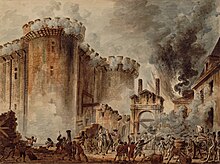


The 18th century lasted from January 1, 1701 (MDCCI) to December 31, 1800 (MDCCC). During the 18th century, elements of Enlightenment thinking culminated in the American, French, and Haitian revolutions. During the century, slave trading and human trafficking expanded on a global scale. Revolutions began to challenge the legitimacy of monarchical and aristocratic power structures, including the structures and beliefs that supported the slave trade.
The period is also known as the "century of lights" or the "century of reason". In continental Europe, philosophers dreamed of a brighter age. For some, this dream turned into a reality with the French Revolution of 1789, though this was later compromised by the excesses of the Reign of Terror. At first, many monarchies of Europe embraced Enlightenment ideals, but in the wake of the French Revolution they feared loss of power and formed broad coalitions for counter-revolution.
18th century music includes works characteristic of the Late Baroque period (including Johann Sebastian Bach and George Frideric Handel) and the classical period (including Joseph Haydn and Wolfgang Amadeus Mozart).
The Ottoman Empire experienced an unprecedented period of peace and economic expansion, taking part in no European wars from 1740 to 1768. As a consequence, the empire was not exposed to Europe's military improvements of the Seven Years' War (1756–1763). The Ottoman empire military may have fallen behind and suffered defeats against Russia in the second half of the century.
The 18th century also marked the end of the Polish–Lithuanian Commonwealth as an independent state. The formerly powerful and vast kingdom, which had once conquered Moscow and defeated great Ottoman armies, collapsed under numerous invasions. Its semi-democratic government system was not robust enough to rival the neighboring monarchies of the Kingdom of Prussia, the Russian Empire and the Austrian Empire which divided the Commonwealth territories between themselves, changing the landscape of Central Europe and politics for the next hundred years.
European colonization of the Americas and other parts of the world intensified and associated mass migrations of people grew in size as the Age of Sail continued.
Great Britain became a major power worldwide with the French and Indian War in the 1760s and the conquest of large parts of India, especially Bengal. However, Britain lost many of its North American colonies after the American Revolution and Indian wars. In North America, the defeat of the British resulted in the formation of an independent United States.
In Central Asia, Nader Shah led successful military campaigns and major invasions, which led to the founding of the Durrani Empire.
In the Indian subcontinent, the death of the Mughal Emperor Aurangzeb marked the end of medieval India. It marked the beginning of modern India and the era of extensive European intervention in the subcontinent. The victory of the British East India Company over the Nawab of Bengal and their French allies in the Battle of Plassey caused the deindustrialization of Bengal and the beginning of the British Industrial Revolution which radically changed human society and the environment. The British invasion expanded to cover much of South Asia.
French-Italian emperor Napoleon Bonaparte formed one of the Franco-Indian alliances with the major economic power Kingdom of Mysore, governed by Tipu Sultan and his father Hyder Ali, who pioneered the use of Rocket artillery and the world's first iron-cased rockets, the Mysorean rockets, through the compilation of the Fathul Mujahidin. The Anglo-Mysore Wars were fought and the Treaty of Mangalore was initiated in 1784.
Western historians have occasionally defined the 18th century otherwise for the purposes of their work. For example, the "short" 18th century may be defined as 1715–1789, denoting the period of time between the death of Louis XIV of France and the start of the French Revolution, with an emphasis on directly interconnected events. To historians who expand the century to include larger historical movements, the "long" 18th century may run from the Glorious Revolution of 1688 to the Battle of Waterloo in 1815 or even later.
Events
Main article: Timeline of the 18th century1701–1750


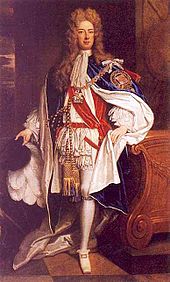

- 1700–1721: Great Northern War between the Russian and Swedish Empires.
- 1701: Kingdom of Prussia declared under King Frederick I.
- 1701–1714: The War of the Spanish Succession is fought, involving most of continental Europe.
- 1702–1715: Camisard Rebellion in France.
- 1703: Saint Petersburg is founded by Peter the Great; it is the Russian capital until 1918.
- 1703–1711: The Rákóczi Uprising against the Habsburg Monarchy.
- 1704: End of Japan's Genroku period.
- 1704: First Javanese War of Succession.
- 1706–1713: The War of the Spanish Succession: French troops defeated at the battles of Ramillies and Turin.
- 1707: The Act of Union is passed, merging the Scottish and English Parliaments, thus establishing the Kingdom of Great Britain.
- 1708: The Company of Merchants of London Trading into the East Indies and English Company Trading to the East Indies merge to form the United Company of Merchants of England Trading to the East Indies.
- 1708–1709: Famine kills one-third of East Prussia's population.
- 1709: The Great Frost of 1709 marks the coldest winter in 500 years.
- 1710: The world's first copyright legislation, Britain's Statute of Anne, takes effect.
- 1710–1711: Ottoman Empire fights Russia in the Russo-Turkish War.
- 1711–1715: Tuscarora War between British, Dutch, and German settlers and the Tuscarora people of North Carolina.
- 1714: In Amsterdam, Daniel Gabriel Fahrenheit invents the mercury-in-glass thermometer, which remains the most reliable and accurate thermometer until the electronic era.
- 1715: The first Jacobite rising breaks out; the British halt the Jacobite advance at the Battle of Sheriffmuir; Battle of Preston.
- 1716: Establishment of the Sikh Confederacy along the present-day India-Pakistan border.
- 1718: The city of New Orleans is founded by the French in North America.
- 1718–1730: Tulip period of the Ottoman Empire.
- 1719: Second Javanese War of Succession.
- 1720: The South Sea Bubble.
- 1720–1721: The Great Plague of Marseille.
- 1721: The Treaty of Nystad is signed, ending the Great Northern War.
- 1721: Sack of Shamakhi, massacre of its Shia population by Sunni Lezgins.
- 1722–1723: Russo-Persian War.
- 1722–1725: Controversy over William Wood's halfpence leads to the Drapier's Letters and begins the Irish economic independence from England movement.
- 1723: Slavery is abolished in Russia; Peter the Great converts household slaves into house serfs.
- 1723–1730: The "Great Disaster", an invasion of Kazakh territories by the Dzungars.
- 1724: Daniel Gabriel Fahrenheit proposes the Fahrenheit temperature scale.
- 1727–1729: Anglo-Spanish War.
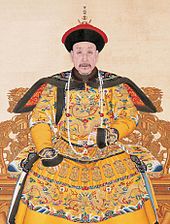
- 1730: Mahmud I takes over Ottoman Empire after the Patrona Halil revolt, ending the Tulip period.
- 1730–1760: The First Great Awakening takes place in Great Britain and North America.
- 1732–1734: Crimean Tatar raids into Russia.
- 1733–1738: War of the Polish Succession.
- 1735–1739: Russo-Turkish War.
- 1735–1799: The Qianlong Emperor of China oversees a huge expansion in territory.
- 1738–1756: Famine across the Sahel; half the population of Timbuktu dies.
- 1739: Great Britain and Spain fight the War of Jenkins' Ear in the Caribbean.

- 1740: Great Awakening, George Whitefield
- 1740–1741: Famine in Ireland kills 20 percent of the population.
- 1740–1748: War of the Austrian Succession.
- 1742:
- Marvel's Mill, the first water-powered cotton mill, begins operation in England.
- Anders Celsius proposes an inverted form of the Centigrade temperature, which is later renamed Celsius in his honor.
- 1742: Premiere of Handel's Messiah
- 1744: The First Saudi State is founded by Mohammed Ibn Saud.
- 1744–1748: The First Carnatic War is fought between the British, the French, the Marathas, and Mysore in India.
- 1745: Second Jacobite rising is begun by Charles Edward Stuart in Scotland.
- 1748: The Treaty of Aix-La-Chapelle ends the War of the Austrian Succession and First Carnatic War.
- 1748–1754: The Second Carnatic War is fought between the British, the French, the Marathas, and Mysore in India.
- 1750: Peak of the Little Ice Age.
1751–1800
- 1754: The Treaty of Pondicherry ends the Second Carnatic War and recognizes Muhammed Ali Khan Wallajah as Nawab of the Carnatic.
- 1754: King's College is founded by a royal charter of George II of Great Britain.
- 1754–1763: The French and Indian War, the North American chapter of the Seven Years' War, is fought in colonial North America, mostly by the French and their allies against the English and their allies.
- 1755: The great Lisbon earthquake destroys most of Portugal's capital and kills up to 100,000.
- 1755–1763: The Great Upheaval forces transfer of the French Acadian population from Nova Scotia and New Brunswick.
- 1756–1763: The Seven Years' War is fought among European powers in various theaters around the world.
- 1756–1763: The Third Carnatic War is fought between the British, the French, the Marathas, and Mysore in India.

- 1760: George III becomes King of Britain.
- 1761: Maratha Empire defeated at Battle of Panipat.
- 1762–1796: Reign of Catherine the Great of Russia.
- 1763: The Treaty of Paris ends the Seven Years' War and Third Carnatic War.
- 1765: The Stamp Act is introduced into the American colonies by the British Parliament.
- 1766: Christian VII becomes king of Denmark. He was king of Denmark to 1808.
- 1766–1799: Anglo-Mysore Wars.
- 1768–1772: War of the Bar Confederation.
- 1768–1774: Russo-Turkish War.
- 1769: Spanish missionaries establish the first of 21 missions in California.
- 1769–1770: James Cook explores and maps New Zealand and Australia.
- 1769–1773: The Bengal famine of 1770 kills one-third of the Bengal population.
- 1769: French expeditions capture clove plants in Ambon, ending the VOC monopoly of the plant. (to 1772)
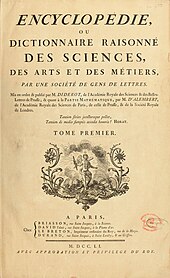
- 1770–1771: Famine in Czech lands kills hundreds of thousands.
- 1771: The Plague Riot in Moscow.
- 1772: Gustav III of Sweden stages a coup d'état, becoming almost an absolute monarch.
- 1772–1779: Maratha Empire fights Britain and Raghunathrao's forces during the First Anglo-Maratha War.
- 1772–1795: The Partitions of Poland end the Polish–Lithuanian Commonwealth and erase Poland from the map for 123 years.
- 1773–1775: Pugachev's Rebellion, the largest peasant revolt in Russian history.
- 1773: East India Company starts operations in Bengal to smuggle opium into China.
- 1775–1782: First Anglo-Maratha War.
- 1775–1783: American Revolutionary War.
- 1776: Illuminati founded by Adam Weishaupt.
- 1776: The United States Declaration of Independence is adopted by the Continental Congress in Philadelphia.
- 1776: Adam Smith publishes The Wealth of Nations.
- 1778: James Cook becomes the first European to land on the Hawaiian Islands.
- 1779–1879: Xhosa Wars between British and Boer settlers and the Xhosas in the South African Republic.

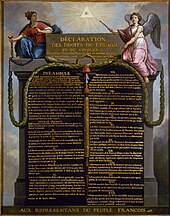
- 1780: Outbreak of the indigenous rebellion against Spanish colonization led by Túpac Amaru II in Peru.
- 1781: The city of Los Angeles is founded by Spanish settlers.
- 1781–1785: Serfdom is abolished in the Austrian monarchy (first step; second step in 1848).
- 1783: The Treaty of Paris formally ends the American Revolutionary War.
- 1785–1791: Imam Sheikh Mansur, a Chechen warrior and Muslim mystic, leads a coalition of Muslim Caucasian tribes from throughout the Caucasus in a holy war against Russian settlers and military bases in the Caucasus, as well as against local traditionalists, who followed the traditional customs and common law (Adat) rather than the theocratic Sharia.
- 1785–1795: The Northwest Indian War is fought between the United States and Native Americans.
- 1786–1787: Mozart premieres The Marriage of Figaro and Don Giovanni
- 1787–1792: Russo-Turkish War.
- 1788: First Fleet arrives in Australia
- 1788–1790: Russo-Swedish War (1788–1790).
- 1789: George Washington is elected the first President of the United States; he serves until 1797.
- 1789–1799: French Revolution.

- 1789: The Liège Revolution.
- 1789: The Brabant Revolution.
- 1789: The Inconfidência Mineira, an unsuccessful separatist movement in central Brazil led by Tiradentes
- 1791: Suppression of the Liège Revolution by Austrian forces and re-establishment of the Prince-Bishopric of Liège.
- 1791–1795: George Vancouver explores the world during the Vancouver Expedition.
- 1791–1804: The Haitian Revolution.
- 1791 Mozart premieres The Magic Flute
- 1792–1802: The French Revolutionary Wars lead into the Napoleonic Wars, which last from 1803–1815.
- 1792: The New York Stock & Exchange Board is founded.
- 1792: Polish–Russian War of 1792.
- 1793: Upper Canada bans slavery.
- 1793: The largest yellow fever epidemic in American history kills as many as 5,000 people in Philadelphia, roughly 10% of the population.
- 1793–1796: Revolt in the Vendée against the French Republic at the time of the Revolution.
- 1794–1816: The Hawkesbury and Nepean Wars, which were a series of incidents between settlers and New South Wales Corps and the Aboriginal Australian clans of the Hawkesbury river in Sydney, Australia.
- 1795: The Marseillaise is officially adopted as the French national anthem.
- 1795: The Battle of Nuʻuanu in the final days of King Kamehameha I's wars to unify the Hawaiian Islands.
- 1796: Edward Jenner administers the first smallpox vaccination; smallpox killed an estimated 400,000 Europeans each year during the 18th century, including five reigning monarchs.
- 1796: War of the First Coalition: The Battle of Montenotte marks Napoleon Bonaparte's first victory as an army commander.
- 1796: The British eject the Dutch from Ceylon.
- 1796–1804: The White Lotus Rebellion against the Manchu dynasty in China.
- 1798: The Irish Rebellion fails to overthrow British rule in Ireland.
- 1798–1800: The Quasi-War is fought between the United States and France.
- 1799: Dutch East India Company is dissolved.
- 1800: 1 January, The bankrupt Dutch East India Company (VOC) is formally dissolved and the nationalised Dutch East Indies are established.
Significant people
Politicians, military
See also: Founding Fathers of the United States and Enlightened absolutism[[File:Napoleon-2.jpg|upright|thumb|Napoleon Bonaparte [[File:Jean-Marc Nattier, Pierre Ier (1717).jpg|thumb|upright|Peter the Great




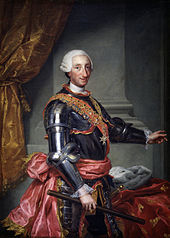

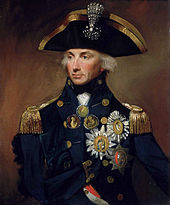



- John Adams, American statesman
- Samuel Adams, American statesman
- Ahmad Shah Abdali, Afghan King
- Ahmed III, Sultan of the Ottoman Empire
- Hyder Ali, Ruler of Mysore
- Ethan Allen, American Revolutionary Army
- Anne, Queen of Great Britain
- Marie Antoinette, Austrian-born Queen of France
- Ferdinand VI, King of Spain
- Augustus III, Elector of Saxony, King of Poland, and Grand Duke of Lithuania
- Aurangzeb, Mughal Emperor
- Bajirao I, Peshwa of Maratha Empire
- Boromakot, King of Ayutthaya
- Boromaracha V, King of Ayutthaya
- Aaron Burr, American statesman
- William Cavendish, Anglo-Irish politician
- William Pitt the Younger, Prime Minister of Britain
- John Carteret, Anglo-Irish politician
- Catherine the Great, Empress of Russia
- Charles III, King of Spain, Naples, and Sicily
- Charles VI, Emperor of the Holy Roman Empire, King of Bohemia and Hungary
- Charles XII, King of Sweden, the Goths and the Wends
- Charlotte Corday, French revolutionary
- Georges Danton, French revolutionary
- Elizabeth of Russia, Empress of Russia
- Farrukhsiyar, Emperor of Mughal
- Ferdinand I, King of Naples, Sicily, and the Two Sicilies
- Benjamin Franklin, American leader, scientist and statesman
- Juan Francisco, Spanish naval officer and explorer
- Adolf Frederick, King of Sweden, the Goths and the Wends
- Frederick the Great, King of Prussia
- George I, King of Great Britain and Ireland
- George II, King of Great Britain and Ireland
- George III, King of Great Britain and Ireland
- Olympe de Gouges, French feminist
- Robert Gray, American revolutionary, merchant, and explorer
- Gustav III, King of Sweden, the Goths and the Wends
- Guru Gobind Singh, tenth of the eleven Sikh Gurus
- Gyeongjong, King of Joseon dynasty
- Nathan Hale, American patriot, executed for espionage by the British
- Abdul Hamid I, Sultan of Ottoman Empire
- Alexander Hamilton, American statesman
- Patrick Henry, American statesman
- Emperor Higashiyama, Emperor of Japan
- Iyasu I, Emperor of Ethiopia and member of the Solomonic dynasty.
- John Jay, American statesman
- Thomas Jefferson, American statesman
- Jeongjo, King of Joseon Dynasty
- John Paul Jones, American naval commander
- Joseph I, King of Portugal
- Joseph II, Austrian Emperor
- Kangxi Emperor, Chinese Emperor
- Karim Khan, Shah of Iran and King of Persi
- Marquis de Lafayette, Continental Army officer
- Louis XIV, King of France
- Louis XV, King of France
- Louis XVI, King of France
- Louis XVII, imprisoned King of France, never ruled
- James Madison, American statesman
- Madhavrao I, fourth Peshwa of Maratha Empire
- Madhavrao I Scindia, Marathan leader
- Mahmud I, Sultan of Ottoman Empire
- Alessandro Malaspina, Spanish explorer
- George Mason, American statesman
- Prince Aleksandr Menshikov, Russian statesman, generalissimo
- Michikinikwa, Miami chief and warrior
- José Moñino y Redondo, Spanish statesman
- Louis-Joseph de Montcalm, French officer
- Mustafa III, Sultan of Ottoman Empire
- Nader Shah, King of Persia
- Napoleon Bonaparte, First Emperor of France
- Ntare IV of Nkore, king of Uganda
- Nakamikado, Emperor of Japan
- Horatio Nelson, British admiral
- Peshwa Balaji Baji Rao, third Peshwa of Maratha Empire
- Shivappa Nayaka, King of Keladi Nayaka
- Osman III, Sultan of Ottoman Empire
- Peter I (Peter the Great), Emperor of Russia
- Philip V, King of Spain
- Pontiac, Ottawa chief and warrior
- Prince Grigory Potyomkin, Russian statesman and general
- Nguyễn Huệ, Emperor of Tây Sơn Dynasty of Vietnam
- Qianlong Emperor, Emperor of China
- Rajaram II of Satara, Monarch of the Maratha Confederacy
- Francis II Rákóczi, Prince of Hungary and Transylvania, revolutionary leader
- Tadeusz Rejtan, Polish politician
- Paul Revere, American revolutionary leader and silversmith
- Maximilien Robespierre, French revolutionary leader
- Betsy Ross, American flag maker
- Count Pyotr Rumyantsev, Russian general
- Shah Rukh of Persia, King of Persia.
- John Russell, Anglo-Irish politician
- Lionel Sackville, Anglo-Irish politician
- Louis Antoine de Saint-Just, French revolutionary
- Sebastião de Melo, Prime Minister of Portugal
- Prithivi Narayan Shah, King of Nepal and founder of Kingdom of Nepal
- Chattrapati Shahu, Emperor of Maratha Empire
- Selim III, Sultan of Ottoman Empire
- Charles Edward Stuart, Anglo-Scottish Jacobite exile
- Sukjong, King of Joseon Dynasty
- Alexander Suvorov, Russian military leader
- Maria Theresa, Austrian Empress
- Theobald Wolfe Tone, Leader of the 1798 United Irishmen rebellion
- Tokugawa Ieharu, Japanese Shōgun
- Tokugawa Ienobu, Japanese Shōgun
- Tokugawa Ieshige, Japanese Shōgun
- Tokugawa Ietsugu, Japanese Shōgun
- Tokugawa Tsunayoshi, Japanese Shōgun
- Tokugawa Yoshimune, Japanese Shōgun
- Toussaint L'Ouverture, Haitian revolutionary leader
- Túpac Amaru II, Peruvian revolutionary
- George Vancouver, British Captain and explorer
- Robert Walpole, Prime Minister of Great Britain
- George Washington, American general and first President of the United States
- James Wolfe, British officer
- Yeongjo, King of Joseon Dynasty
Show business, theatre, entertainers
See also: Theatre Royal, Drury Lane; Haymarket Theatre; and Sichuan opera

- Pierre Beaumarchais, French playwright
- Antonio Bernacchi, Italian singer
- Faustina Bordoni, Italian singer
- La Camargo, French dancer
- Barbara Campanini, Italian dancer
- Colley Cibber, English actor, poet, playwright
- La Clairon, French actress
- Fabre d'Églantine, French actor
- Farinelli, Italian singer
- Denis Fonvizin, Russian playwright
- David Garrick, English actor
- John Gay, English dramatist and poet
- Carlo Goldoni, Italian playwright
- Carlo Gozzi, Italian playwright
- Antiochus Kantemir, Russian playwright
- Kong Shangren, Chinese dramatist, poet
- Praskovia Kovalyova-Zhemchugova, Russian actress, singer
- Adrienne Lecouvreur, French actress
- Charles Macklin, Irish actor
- Chikamatsu Monzaemon, Japanese dramatist, playwright
- Jean-Georges Noverre, French dancer and balletmaster
- Marie Sallé, French dancer and choreographer
- Senesino, Italian singer
- Richard Brinsley Sheridan, Irish playwright
- Alexander Sumarokov, Russian playwright
- François-Joseph Talma, French actor
- Fyodor Volkov, Russian actor
- Wang Yun, Chinese playwright, poet
Musicians, composers
Main articles: List of Classical era composers and List of Baroque composers


- Tomaso Albinoni, Italian composer
- Johann Sebastian Bach, German composer
- Luigi Boccherini, Italian composer
- Dmitry Bortniansky, Russian composer
- Charles Burney, English musician and music historian
- François Couperin, French composer
- William Cowper, English hymnist and poet
- Dede Efendi, Turkish/Ottoman composer
- Christoph Willibald Gluck, German composer
- Francesco Geminiani, Italian violinist, composer, and music theorist
- George Frideric Handel, German-English composer
- Joseph Haydn, Austrian composer
- Hampartsoum Limondjian, Armenian/Ottoman composer
- Kali Mirza, Bengali composer
- Wolfgang Amadeus Mozart, Austrian composer
- Johann Pachelbel, German composer, teacher
- François-André Danican Philidor, French composer and chess master
- Jean-Philippe Rameau, French composer
- Bharatchandra Ray, Bengali composer, musician, and poet
- Antonio Salieri, Venetian composer
- Domenico Scarlatti, Italian composer
- Antonio Stradivari, Italian violin maker
- Georg Philipp Telemann, German composer
- Antonio Vivaldi, Italian composer
- Isaac Watts, English hymnist
Visual artists, painters, sculptors, printmakers, architects
Main articles: History of painting, Rococo, and Neoclassicism



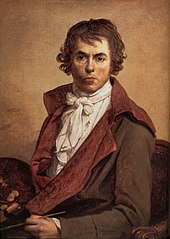
- John James Audubon, French painter
- John Baskerville, British printer and typographer (founder of Baskerville font, Birmingham)
- Bernardo Bellotto, Italian painter
- Michel Benoist, French painter, architect, missionary in China
- William Blake, English artist and poet
- Edmé Bouchardon, French sculptor
- François Boucher, French painter
- Canaletto, Italian painter
- Rosalba Carriera, Italian painter
- Giuseppe Castiglione, Italian painter, architect, missionary in China
- Jean-Baptiste-Siméon Chardin, French painter
- Vasili Bazhenov, Russian architect
- Karl Blank, Russian architect
- Vladimir Borovikovsky, Russian painter
- Leonardo Coccorante, Italian painter
- John Singleton Copley, American painter
- Jacques-Louis David, French painter
- Yury Felten, Russian architect
- Johann Bernhard Fischer von Erlach, Austrian architect
- Étienne Maurice Falconet, French sculptor
- Jean-Honoré Fragonard, French painter
- Gai Qi, Chinese painter, poet
- Thomas Gainsborough, English painter
- Francisco de Goya, Spanish painter
- Jean-Baptiste Greuze, French painter
- Giuseppe Grisoni, Italian painter
- Francesco Guardi, Italian painter
- Jacob Philipp Hackert, German painter
- Johann Lukas von Hildebrandt, Austrian-Italian architect
- William Hogarth, English painter and engraver
- Angelica Kauffman, Austrian painter
- Matvey Kazakov, Russian architect
- Georg Wenzeslaus von Knobelsdorff, German painter and architect
- Alexander Kokorinov, Russian architect
- Mikhail Ivanovich Kozlovsky, Russian sculptor
- Jean-Baptiste Lemoyne, French sculptor, student of his father
- Jean-Louis Lemoyne, French sculptor
- Dmitry Levitzky, Russian painter
- Jean-Étienne Liotard, Swiss painter
- Jiang Tingxi, Chinese artist and scholar
- Robert Le Lorrain, French sculptor
- Ivan Martos, Russian sculptor
- Constance Mayer, French painter
- Luis Egidio Meléndez, Spanish painter
- Antoine Ignace Melling, French-German painter, architect
- Louis Montoyer, Belgian architect
- Nishikawa Sukenobu, Japanese printmaker, teacher
- Giovanni Paolo Panini, Italian painter
- Ulrika Pasch, Swedish painter
- Giovanni Battista Piranesi, Italian painter
- Matthäus Daniel Pöppelmann, German architect (Saxony)
- Bartolomeo Rastrelli, Italian-born Russian architect
- Joshua Reynolds, English painter
- Rachel Ruysch, Dutch painter
- Giacomo Quarenghi, Italian-born Russian architect
- Francisco Salzillo, Spanish sculptor
- Gilbert Stuart, American painter
- Suzuki Harunobu, Japanese woodblock printer
- Giovanni Battista Tiepolo, Venetian painter
- Domenico Trezzini, Italian-born Russian architect
- Kitagawa Utamaro, Japanese printmaker and painter
- Luigi Vanvitelli, Italian architect
- Louise Élisabeth Vigée Le Brun, French painter
- Juan de Villanueva, Spanish architect
- Marie-Denise Villers, French painter
- Antoine Watteau, French painter
- Yuan Mei, Chinese painter, poet, essayist
- Mikhail Zemtsov, Russian architect
Writers, poets

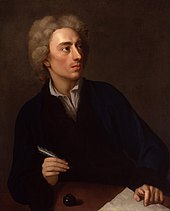
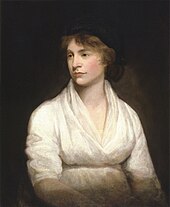
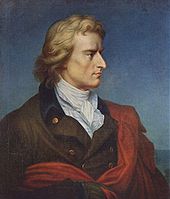
- Phillis Wheatley, American poet
- Jane Austen, English writer
- Francisco Balagtas, Filipino poet
- Anna Laetitia Barbauld, English Poet, essayist, and children's author
- Pierre Beaumarchais, French writer
- Bernardin de St. Pierre, French writer
- Nicolas Boileau-Despréaux, French poet and literary critic
- James Boswell, Scottish biographer
- Frances Burney, English novelist
- Robert Burns, Scottish poet
- Cao Xueqin, Chinese writer
- Giacomo Casanova, Venetian adventurer, writer and womanizer
- Pierre Choderlos de Laclos, French writer
- Daniel Defoe, English novelist and journalist
- Gavrila Derzhavin, Russian poet
- Maria Edgeworth, Anglo-Irish novelist
- Olaudah Equiano, Eboe writer and abolitionist
- Henry Fielding, English novelist
- Bernard Le Bovier de Fontenelle, French writer
- Johann Wolfgang von Goethe, German writer
- Oliver Goldsmith, Anglo-Irish writer, poet, children's writer, and playwright
- Thomas Gray, English poet, scholar, and educator
- Eliza Haywood, English writer
- Samuel Johnson, British writer, lexicographer, poet, and literary critic
- Ferenc Kazinczy, Hungarian writer
- Ivan Krylov, Russian fabulist
- Pierre Choderlos de Laclos, French writer
- Charlotte Lennox, English novelist and poet
- Liang Desheng, Chinese poet and writer
- Matthew Lewis, English novelist and playwright
- Li Ruzhen, Chinese novelist
- Sadhak Kamalakanta, Indian poet
- Henry Mackenzie, Scottish novelist
- Jean-Paul Marat, French journalist
- Pierre de Marivaux, French writer
- Gaspar Melchor de Jovellanos, Spanish writer
- Honoré Mirabeau, French writer and politician
- John Newbery, English children's literature publisher
- Alexander Pope, English poet
- Abbe Prevost, French writer
- Pu Songling, Chinese short story writer
- Ann Radcliffe, English novelist
- Alexander Radishchev, Russian writer
- Samuel Richardson, English novelist
- Marquis de Sade, French writer and philosopher
- Ramprasad Sen, Bengali poet and singer
- Friedrich Schiller, German writer
- Walter Scott, Scottish novelist and poet
- Christopher Smart, English poet and actor
- Robert Southey, English poet and biographer
- Hester Thrale, English memoirist
- Vasily Trediakovsky, Russian poet and playwright
- Charlotte Turner Smith, English writer
- Laurence Sterne, Anglo-Irish writer
- Jonathan Swift, Anglo-Irish satirist and Church of Ireland Dean
- Ueda Akinari, Japanese writer
- Voltaire, French writer and philosopher
- Horace Walpole, English writer and politician
- Phillis Wheatley, first published African-American female poet
- Mary Wollstonecraft, British writer and feminist
- Wu Jingzi, Chinese writer
- Yuan Mei, Chinese poet, scholar and artist
Philosophers, theologians
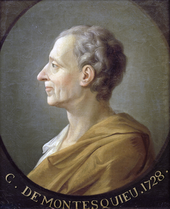



- Arai Hakuseki, Japanese scholar, writer and politician
- Baal Shem Tov, Ukrainian rabbi
- Cesare Beccaria, Italian philosopher and politician
- Jeremy Bentham, English philosopher and reformer
- George Berkeley, Irish empiricist philosopher
- Edmund Burke, British statesman and philosopher
- Étienne Bonnot de Condillac, French philosopher
- Marquis de Condorcet, French philosopher
- Frederick Cornwallis, Archbishop of Canterbury
- Erasmus Darwin, English philosopher, poet and scientist
- Denis Diderot, French writer and philosopher
- Jonathan Edwards, American theologian and philosopher
- William Godwin, English philosopher and novelist
- Aaron Halle-Wolfssohn, German writer, Jewish theologian, translator, and professor
- Johann Gottfried Herder, German philosopher, writer, and critic
- Thomas Herring, Archbishop of Canterbury
- Baron d'Holbach, French-German philosopher and writer
- David Hume, Scottish philosopher
- Matthew Hutton, Archbishop of Canterbury
- Kamo no Mabuchi, Japanese philosopher
- Immanuel Kant, German philosopher
- William Law, English theologian
- Gotthold Ephraim Lessing, German philosopher and writer
- Saint Alphonsus Liguori, Italian bishop, founder of Redemptorists, Saint
- Joseph de Maistre, Italian philosopher and diplomat
- Moses Mendelssohn, German philosopher
- Charles de Secondat (Montesquieu), French thinker
- John Moore, Archbishop of Canterbury
- Motoori Norinaga, Japanese philosopher and scholar
- Thomas Paine, English philosopher
- Elihu Palmer, American deist
- Thomas Percy, English bishop and editor
- Joseph Perl, German writer, Jewish theologian, and educator
- John Potter, Archbishop of Canterbury
- Jean-Jacques Rousseau, French writer and philosopher
- Thomas Secker, Archbishop of Canterbury
- Saint Seraphim of Sarov, Russian theologian
- Sugita Genpaku, Japanese scholar and translator
- Emanuel Swedenborg, Swedish scientist, thinker and mystic
- Thomas Tenison, Archbishop of Canterbury
- Christian Thomasius, German philosopher and jurist
- Giambattista Vico, Italian philosopher
- Muhammad ibn Abd al Wahhab, Arab Islamic theologian and founder of Wahhabism
- William Wake, Archbishop of Canterbury
- John Wesley, English theologian, founder of Methodism
- Zeynalabdin Shirvani, also known as Tamkin, was an Azerbaijani geographer, philosopher and poet
- Nikolaus Ludwig von Zinzendorf, German religious writer and bishop
Scientists, researchers

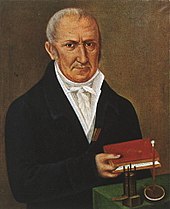




- Benjamin Banneker, African American almanac author, surveyor, abolitionist and scientist
- Maria Gaetana Agnesi, Italian mathematician
- Jean le Rond d'Alembert, French mathematician, physicist and encyclopedist
- Joseph Banks, English botanist
- Laura Bassi, Italian scientist, the first European female college teacher
- Daniel Bernoulli, Swiss mathematician and physicist
- Joseph Black, Scottish chemist (discovered carbon dioxide)
- Roger Joseph Boscovich, physicist, astronomer, mathematician, philosopher, diplomat, poet, and Jesuit
- Comte de Buffon, French scientist
- Henry Cavendish, chemist (recognized Hydrogen as its own elemental substance)
- Anders Celsius, Swedish astronomer
- Jacques Charles, French scientist and inventor
- Anders Chydenius, Finnish philosopher and economist
- Alexis Clairaut, French mathematician
- James Cook, English navigator, explorer and cartographer
- Dai Zhen, Chinese mathematician, geographer, phonologist and philosopher
- Eugenio Espejo, Ecuadorian scientist
- Leonhard Euler, Swiss mathematician
- Daniel Gabriel Fahrenheit, German physicist and engineer
- George Fordyce, Scottish physician and chemist
- Carl Friedrich Gauss, German mathematician, physicist and astronomer
- Edward Gibbon, English historian
- Edward Jenner, English inventor of vaccination
- William Jones, English philologist
- Nikolay Karamzin, Russian historian
- Ivan Kulibin, Russian inventor
- Joseph-Louis Lagrange, Italian-French mathematician and physicist
- Jean-Baptiste Lamarck, French naturalist, biologist
- Pierre-Simon Laplace, French physicist and mathematician
- Antoine Lavoisier, French chemist, considered father of modern chemistry
- Marie-Anne Paulze Lavoisier, French chemist and painter
- John Law, Scottish economist
- Pan Lei, Chinese scholar and mathematician
- Adrien-Marie Legendre, French mathematician
- Carl Linnaeus, Swedish biologist
- Mikhail Lomonosov, Russian scientist
- Edmond Malone, Irish literary scholar
- Thomas Malthus, English economist
- Pierre Louis Maupertuis, French mathematician
- Peter Simon Pallas, German-Russian zoologist and botanist
- Joseph Priestley, dissenting minister and chemist
- René Antoine Ferchault de Réaumur, French scientist
- François Quesnay, French economist
- Carl Wilhelm Scheele, Swedish chemist (discovered oxygen)
- John Smeaton, civil engineer and physicist
- Adam Smith, Scottish economist and philosopher
- Vasily Tatishchev, Russian historian and ethnographer
- Anne-Robert-Jacques Turgot, Baron de Laune, French economist
- Antonio de Ulloa, Spanish scientist and explorer
- Alessandro Volta, Italian physicist and chemist
- James Watt, Scottish scientist and inventor
- Benjamin West, American astronomer and mathematician
- John Whitehurst, English geologist
Other
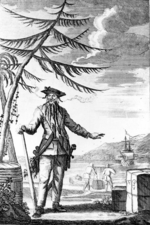
- James Aitken alias John the Painter, British criminal
- Blackbeard, English pirate
- John Bowen, Bermudian pirate
- Black Caesar, African pirate
- John Caesar, first Australian bushranger
- Calico Jack, English pirate
- Gabriel Prosser, American literate enslaved blacksmith
- Bartholomew Roberts, Welsh pirate
Inventions, discoveries, introductions
Main articles: Timeline of historic inventions § 18th century, and Timeline of scientific discoveries § 18th century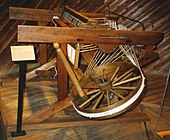
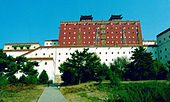
- 1709: The first piano was built by Bartolomeo Cristofori
- 1711: Tuning fork was invented by John Shore
- 1712: Steam engine invented by Thomas Newcomen
- 1714: Mercury thermometer by Daniel Gabriel Fahrenheit
- 1717: Diving bell was successfully tested by Edmond Halley, sustainable to a depth of 55 ft
- c. 1730: Octant navigational tool was developed by John Hadley in England, and Thomas Godfrey in America
- 1733: Flying shuttle invented by John Kay
- 1736: Europeans encountered rubber – the discovery was made by Charles Marie de La Condamine while on expedition in South America. It was named in 1770 by Joseph Priestley
- c. 1740: Modern steel was developed by Benjamin Huntsman
- 1741: Vitus Bering discovers Alaska
- 1745: Leyden jar invented by Ewald Georg von Kleist was the first electrical capacitor
- 1752: Lightning rod invented by Benjamin Franklin
- 1753: The first Clock to be built in the New World (North America) was invented by Benjamin Banneker.
- 1755: The tallest wooden Bodhisattva statue in the world is erected at Puning Temple, Chengde, China.
- 1764: Spinning jenny created by James Hargreaves brought on the Industrial Revolution
- 1765: James Watt enhances Newcomen's steam engine, allowing new steel technologies
- 1761: The problem of longitude was finally resolved by the fourth chronometer of John Harrison
- 1763: Thomas Bayes publishes first version of Bayes' theorem, paving the way for Bayesian probability
- 1768–1779: James Cook mapped the boundaries of the Pacific Ocean and discovered many Pacific Islands
- 1774: Joseph Priestley discovers "dephlogisticated air", oxygen
- 1775: Joseph Priestley first synthesis of "phlogisticated nitrous air", nitrous oxide, "laughing gas"
- 1776: First improved steam engines installed by James Watt
- 1776: Steamboat invented by Claude de Jouffroy
- 1777: Circular saw invented by Samuel Miller
- 1779: Photosynthesis was first discovered by Jan Ingenhousz
- 1781: William Herschel announces discovery of Uranus
- 1784: Bifocals invented by Benjamin Franklin
- 1784: Argand lamp invented by Aimé Argand
- 1785: Power loom invented by Edmund Cartwright
- 1785: Automatic flour mill invented by Oliver Evans
- 1786: Threshing machine invented by Andrew Meikle
- 1787: Jacques Charles discovers Charles's law
- 1789: Antoine Lavoisier discovers the law of conservation of mass, the basis for chemistry, and begins modern chemistry
- 1798: Edward Jenner publishes a treatise about smallpox vaccination
- 1798: The Lithographic printing process invented by Alois Senefelder
- 1799: Rosetta Stone discovered by Napoleon's troops
Literary and philosophical achievements
- 1703: The Love Suicides at Sonezaki by Chikamatsu first performed
- 1704–1717: One Thousand and One Nights translated into French by Antoine Galland. The work becomes immensely popular throughout Europe.
- 1704: A Tale of a Tub by Jonathan Swift first published
- 1712: The Rape of the Lock by Alexander Pope (publication of first version)
- 1719: Robinson Crusoe by Daniel Defoe
- 1725: The New Science by Giambattista Vico
- 1726: Gulliver's Travels by Jonathan Swift
- 1728: The Dunciad by Alexander Pope (publication of first version)
- 1744: A Little Pretty Pocket-Book becomes one of the first books marketed for children
- 1748: Chushingura (The Treasury of Loyal Retainers), popular Japanese puppet play, composed
- 1748: Clarissa by Samuel Richardson
- 1749: The History of Tom Jones, a Foundling by Henry Fielding
- 1751: Elegy Written in a Country Churchyard by Thomas Gray published
- 1751–1785: The French Encyclopédie
- 1755: A Dictionary of the English Language by Samuel Johnson
- 1759: Candide by Voltaire
- 1759: The Theory of Moral Sentiments by Adam Smith
- 1759–1767: Tristram Shandy by Laurence Sterne
- 1762: Emile: or, On Education by Jean-Jacques Rousseau
- 1762: The Social Contract, Or Principles of Political Right by Jean-Jacques Rousseau
- 1774: The Sorrows of Young Werther by Goethe first published
- 1776: Ugetsu Monogatari (Tales of Moonlight and Rain) by Ueda Akinari
- 1776: The Wealth of Nations, foundation of the modern theory of economy, was published by Adam Smith
- 1776–1789: The History of the Decline and Fall of the Roman Empire was published by Edward Gibbon
- 1779: Amazing Grace published by John Newton
- 1779–1782: Lives of the Most Eminent English Poets by Samuel Johnson
- 1781: Critique of Pure Reason by Immanuel Kant (publication of first edition)
- 1781: The Robbers by Friedrich Schiller first published
- 1782: Les Liaisons dangereuses by Pierre Choderlos de Laclos
- 1786: Poems, Chiefly in the Scottish Dialect by Robert Burns
- 1787–1788: The Federalist Papers by Alexander Hamilton, James Madison, and John Jay
- 1788: Critique of Practical Reason by Immanuel Kant
- 1789: Songs of Innocence by William Blake
- 1789: The Interesting Narrative of the Life of Olaudah Equiano by Olaudah Equiano
- 1790: Journey from St. Petersburg to Moscow by Alexander Radishchev
- 1790: Reflections on the Revolution in France by Edmund Burke
- 1791: Rights of Man by Thomas Paine
- 1792: A Vindication of the Rights of Woman by Mary Wollstonecraft
- 1794: Songs of Experience by William Blake
- 1798: Lyrical Ballads by William Wordsworth and Samuel Taylor Coleridge
- 1798: An Essay on the Principle of Population published by Thomas Malthus
- (mid-18th century): The Dream of the Red Chamber (authorship attributed to Cao Xueqin), one of the most famous Chinese novels
Musical works
- 1711: Rinaldo, Handel's first opera for the London stage, premiered
- 1721: Brandenburg Concertos by J.S. Bach
- 1723: The Four Seasons, violin concertos by Antonio Vivaldi, composed
- 1724: St John Passion by J.S. Bach
- 1727: St Matthew Passion composed by J.S. Bach
- 1733: Hippolyte et Aricie, first opera by Jean-Philippe Rameau
- 1741: Goldberg Variations for harpsichord published by Bach
- 1742: Messiah, oratorio by Handel premiered in Dublin
- 1749: Mass in B minor by J.S. Bach assembled in current form
- 1751: The Art of Fugue by J.S. Bach
- 1762: Orfeo ed Euridice, first "reform opera" by Gluck, performed in Vienna
- 1786: The Marriage of Figaro, opera by Mozart
- 1787: Don Giovanni, opera by Mozart
- 1788: Jupiter Symphony (Symphony No.41) composed by Mozart
- 1791: The Magic Flute, opera by Mozart
- 1791–1795: London symphonies by Haydn
- 1798: The Pathétique, piano sonata by Beethoven
- 1798: The Creation, oratorio by Haydn first performed
References
- Campbell, John; Watts, William (1760). Memoirs of the Revolution in Bengal, anno Dom. 1757. A. Millar, London.
- Parthasarathi, Prasannan (2011), Why Europe Grew Rich and Asia Did Not: Global Economic Divergence, 1600–1850, Cambridge University Press, p. 207, ISBN 978-1-139-49889-0
- Allana, Gulam (1988). Muslim political thought through the ages: 1562–1947 (2 ed.). Pennsylvania State University, Pennsylvania: Royal Book Company. p. 78. ISBN 9789694070919. Retrieved 18 January 2013.
- "Bonaparte and Islam · Liberty, Equality, Fraternity". chnm.gmu.edu. Archived from the original on May 28, 2019. Retrieved October 19, 2019.
- Anderson, M. S. (1979). Historians and Eighteenth-Century Europe, 1715–1789. Oxford University Press. ISBN 978-0-19-822548-5. OCLC 185538307.
- Ribeiro, Aileen (2002). Dress in Eighteenth-Century Europe 1715–1789 (revised ed.). Yale University Press. ISBN 978-0-300-09151-9. OCLC 186413657.
- Baines, Paul (2004). The Long 18th Century. London: Arnold. ISBN 978-0-340-81372-0.
- Marshall, P. J., ed. (2001). The Oxford History of the British Empire: Volume II: The Eighteenth Century (Oxford History of the British Empire). Oxford University Press, USA. ISBN 978-0-19-924677-9. OCLC 174866045., "Introduction" by P. J. Marshall, page 1
- O'Gorman, Frank (1997). The Long Eighteenth Century: British Political and Social History 1688–1832 (The Arnold History of Britain Series). A Hodder Arnold Publication. ISBN 978-0-340-56751-7. OCLC 243883533.
- "War of the Spanish Succession, 1701–1714". Historyofwar.org. Retrieved 2009-04-25.
- Ricklefs (1991), page 82
- Historic uk – heritage of britain accommodation guide (2007-05-03). "The history of Scotland – The Act of Union 1707". Historic-uk.com. Archived from the original on 8 April 2009. Retrieved 2009-04-25.
- Ricklefs (1991), page 84
- "Welcome to Encyclopædia Britannica's Guide to History". Britannica.com. 1910-01-31. Archived from the original on 16 April 2009. Retrieved 2009-04-25.
- "List of Wars of the Crimean Tatars". Zum.de. Archived from the original on 12 March 2009. Retrieved 2009-04-25.
- "Len Milich: Anthropogenic Desertification vs 'Natural' Climate Trends". Ag.arizona.edu. 1997-08-10. Archived from the original on 2012-02-11. Retrieved 2009-04-25.
- "A guide to Scottish clans". Unique-cottages.co.uk. Archived from the original on May 11, 2008. Retrieved 2009-04-25.
- Wadsworth, Alfred P.; Mann, Julia De Lacy (1931). The Cotton Trade and Industrial Lancashire, 1600–1780. Manchester University Press. p. 433. OCLC 2859370.
- "Saudi Arabia – The Saud Family and Wahhabi Islam". Countrystudies.us. Retrieved 2009-04-25.
- "History". Columbia University.
- Ricklefs (1991), page 102
- "Sufism in the Caucasus". Islamicsupremecouncil.org. Archived from the original on February 23, 2009. Retrieved 2009-04-25.
- "Yellow Fever Attacks Philadelphia, 1793". EyeWitness to History. Archived from the original on 7 June 2007. Retrieved 2007-06-22.
- Riedel S (2005). "Edward Jenner and the history of smallpox and vaccination". Proc (Bayl Univ Med Cent). 18 (1): 21–5. doi:10.1080/08998280.2005.11928028. PMC 1200696. PMID 16200144.
- Ricklefs (1991), page 106
- Porter, Roy, ed. (2003). The Cambridge History of Science, Volume 4: The Eighteenth Century (The Cambridge History of Science). Cambridge University Press. ISBN 978-0-521-57243-9. OCLC 123123201., "The Philosopher's Beard: Women and Gender in Science" by Londra Schiebinger, pages 184–210
- Encyclopædia Britannica's Great Inventions, Encyclopædia Britannica Archived August 7, 2008, at the Wayback Machine
- Meggs, Philip B. A History of Graphic Design. (1998) John Wiley & Sons, Inc. p 146 ISBN 978-0-471-29198-5
Further reading
- Black, Jeremy and Roy Porter, eds. A Dictionary of Eighteenth-Century World History (1994) 890pp
- Klekar, Cynthia. “Fictions of the Gift: Generosity and Obligation in Eighteenth-Century English Literature.” Innovative Course Design Winner. American Society for Eighteenth-Century Studies: Wake Forest University, 2004. <Home | American Society for Eighteenth-Century Studies (ASECS)>. Refereed.
- Langer, William. An Encyclopedia of World History (5th ed. 1973); highly detailed outline of events online free
- Morris, Richard B. and Graham W. Irwin, eds. Harper Encyclopedia of the Modern World: A Concise Reference History from 1760 to the Present (1970) online
- Milward, Alan S, and S. B. Saul, eds. The economic development of continental Europe: 1780–1870 (1973) online; note there are two different books with identical authors and slightly different titles. Their coverfage does not overlap.
- Milward, Alan S, and S. B. Saul, eds. The development of the economies of continental Europe, 1850–1914 (1977) online
- The Wallace Collection, London, houses one of the finest collections of 18th-century decorative arts from France, England and Italy, including paintings, furniture, porcelain and gold boxes.
External links
 Media related to 18th century at Wikimedia Commons
Media related to 18th century at Wikimedia Commons